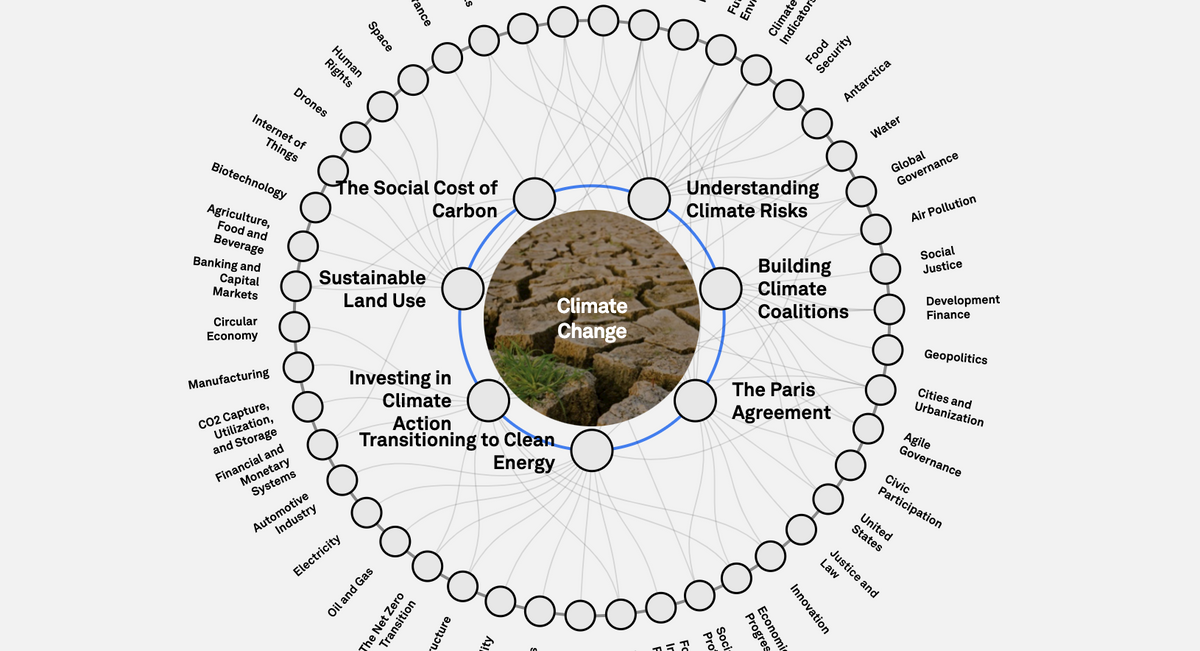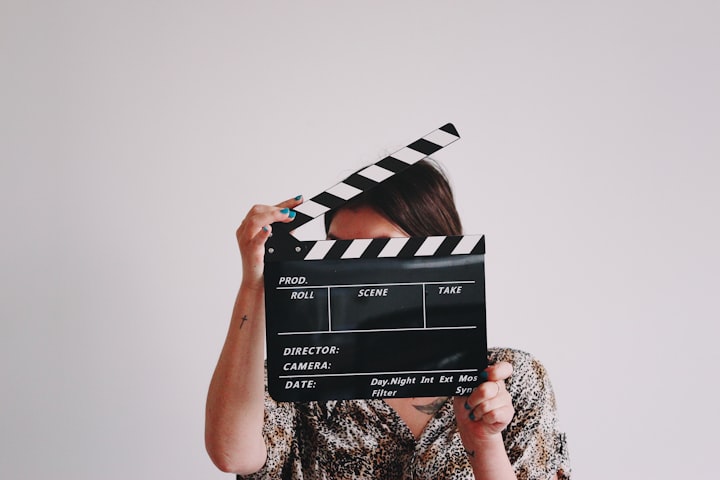A few years ago, a client at a health authority asked me to help them think about what services they should provide in the future. Now, it doesn't matter how creative you are – it's tough for all of us as leaders, as humans to imagine a world very different from our own.
To make my client's future real and tangible, I decided to create four scenarios or mini-stories about four different potential futures. But rather than just guessing about what might happen or making things up, I wanted to base the stories on data – real, measurable trends.
That's when I discovered the amazing and free Strategic Intelligence tool provided by the WEF (World Economic Forum). It doesn't just track trends - it creates dynamic maps connecting topics and trends in a powerful interactive format. Plus it provides connections to resources on each topic and trend if you want to dive deeper.
For my health scenarios, I was able to identify trends like urbanization, AI, telemedicine and privatization that could affect the future of care. Once I had developed the four scenarios, I also created a cast of characters or personas to represent the people living in the future. And I pulled the two together into a game, creating a die (single dice) with the scenarios on it and a deck of cards with the personas.
Then, we invited 25 people to explore the future with us at a workshop. In small groups, participants played the game by rolling the die to choose a scenario and drawing a persona from the deck – then discussing what life would be like for that persona in that scenario. The results were exactly what we wanted. Participants felt surprised at how different things could be in the future and inspired to begin preparing for it.
These days, I'm using the WEF tool for my climate leadership coaching work, helping clients explore issues and trends related to climate change, then use that intelligence to design better climate solutions. Being able to create and engage others in a powerful vision of a better future is a key challenge for today's leaders. And it's a lot easier to do when you don't have to start with a blank slate.
Do you have any futuring tools you use in your work? I'd love to hear about them!
Thanks for reading - and the work you do!





